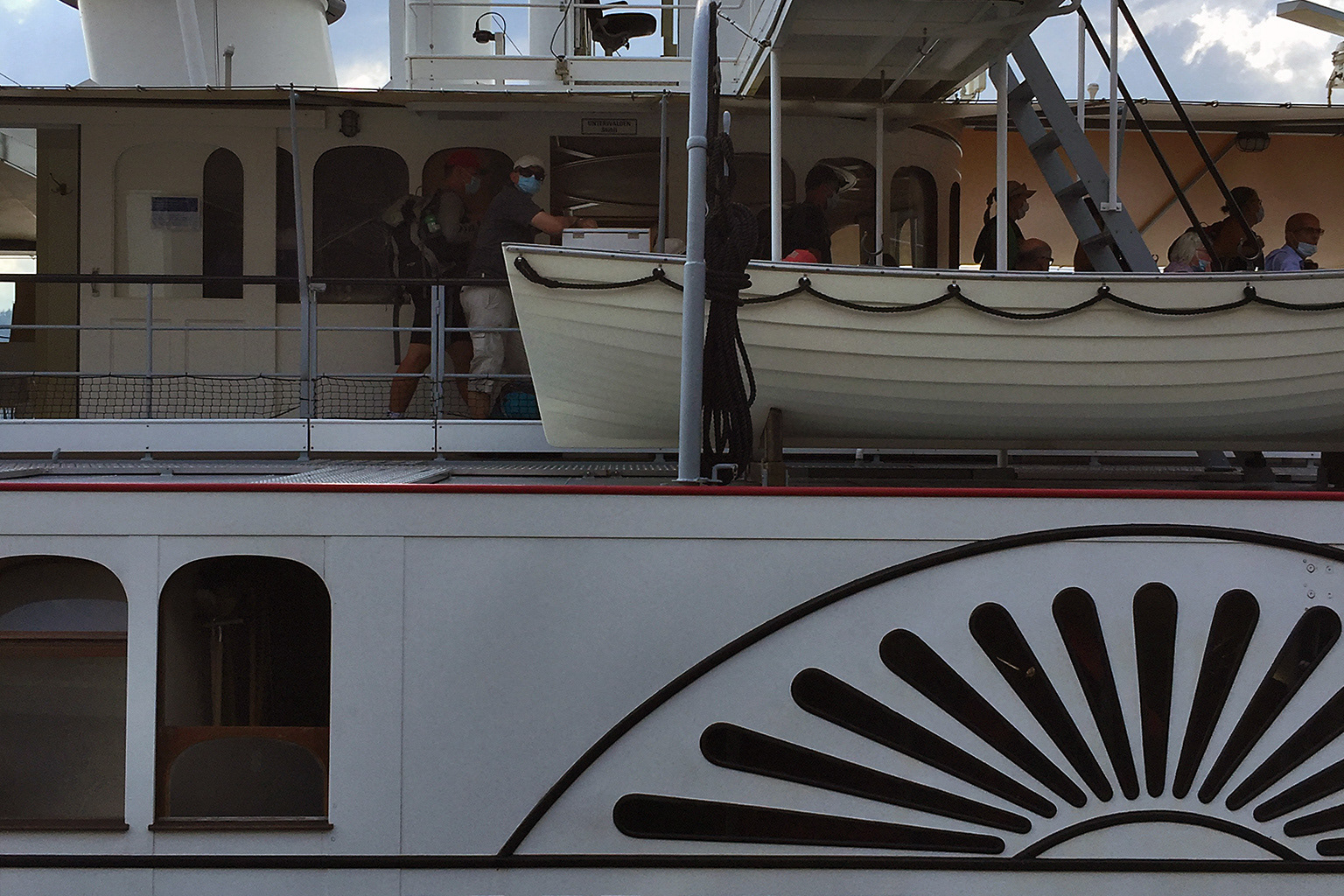YOU CAN'T SEE
A VIRUS... 3 (2020)
„Enlightenment is man's emergence from his self-imposed nonage. Nonage is the inability to use one's own understanding without another's guidance. (...)“
This is probably the most quoted sentence by Immanuel Kant, and it is the beginning of his famous essay Answering the question: What is Enlightenment? from 1784.
The text continues with sentences that are hardly quoted today, but which, more than two hundred years later, are still remarkable - today, when the 'end of the Enlightenment' is said to be the trend and thinking for yourself is not exactly popular, today, when so-called expert knowledge on all possible problems is on all media channels trying to prevent us from thinking for ourselves.
Thinking for yourself is not only exhausting, it also takes courage. Little has changed in this regard since the 18th century.
"(...) Dare to know! (...) 'Have the courage to use your own understanding' is therefore the motto of the enlightenment.
(...) It is so comfortable to be a minor. If I have a book that thinks for me, a pastor who acts as my conscience, a physician who prescribes my diet, and so on - then I have no need to exert myself. (...)
It is more nearly possible, however, for the public to enlighten itself; indeed, if it is only given freedom, enlightenment is almost inevitable. There will always be a few independent thinkers, even among the appointed guardians of the multitude. Once such men have thrown off the yoke of nonage, they will spread about them the spirit of a reasonable appreciation of man's value and of his duty to think for himself. (...)
This enlightenment requires nothing but freedom (...): freedom to make public use of one's reason in all matters. (...)“
From the essay Answering the question: What is enlightenment? by Immanuel Kant (Translated by Mary C. Smith)
Right now we are quite limited in our freedom to think publicly for ourselves. We have been prescribed a symbolic muzzle and have so far not been heard as ‚responsible citizens‘ on the ordered measures against this pandemic.
When I think about the worldwide uniform media (court) reporting and the terminology used, I can't shake the impression that the measures are following an agenda - and as a way out of the crisis we are offered and made tasty solutions that are hatched up by people we have neither elected nor commissioned.
"(...)
There are many reasons to pursue a Great Reset, but the most urgent is COVID-19. (...)
According to the Financial Times, global government debt has already reached its highest level in peacetime. Moreover, unemployment is skyrocketing in many countries: in the US, for example, one in four workers have filed for unemployment since mid-March (...)
Left unaddressed, these crises, together with COVID-19, will deepen and leave the world even less sustainable, less equal, and more fragile. Incremental measures and ad hoc fixes will not suffice to prevent this scenario. We must build entirely new foundations for our economic and social systems. (...)“
Klaus Schwab: Now is the time for a 'Great Reset' (of capitalism)
Who is the 'we' Klaus Schwab is talking about?
And where do the enlightened, self-thinking (self-informing and information-judging) citizens have a place in this scenario?
Thank you for watching and reading (and for thinking for yourself)!
© Fredi Hüberli









